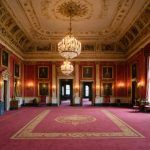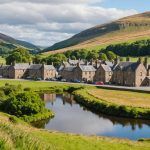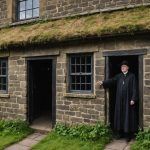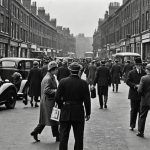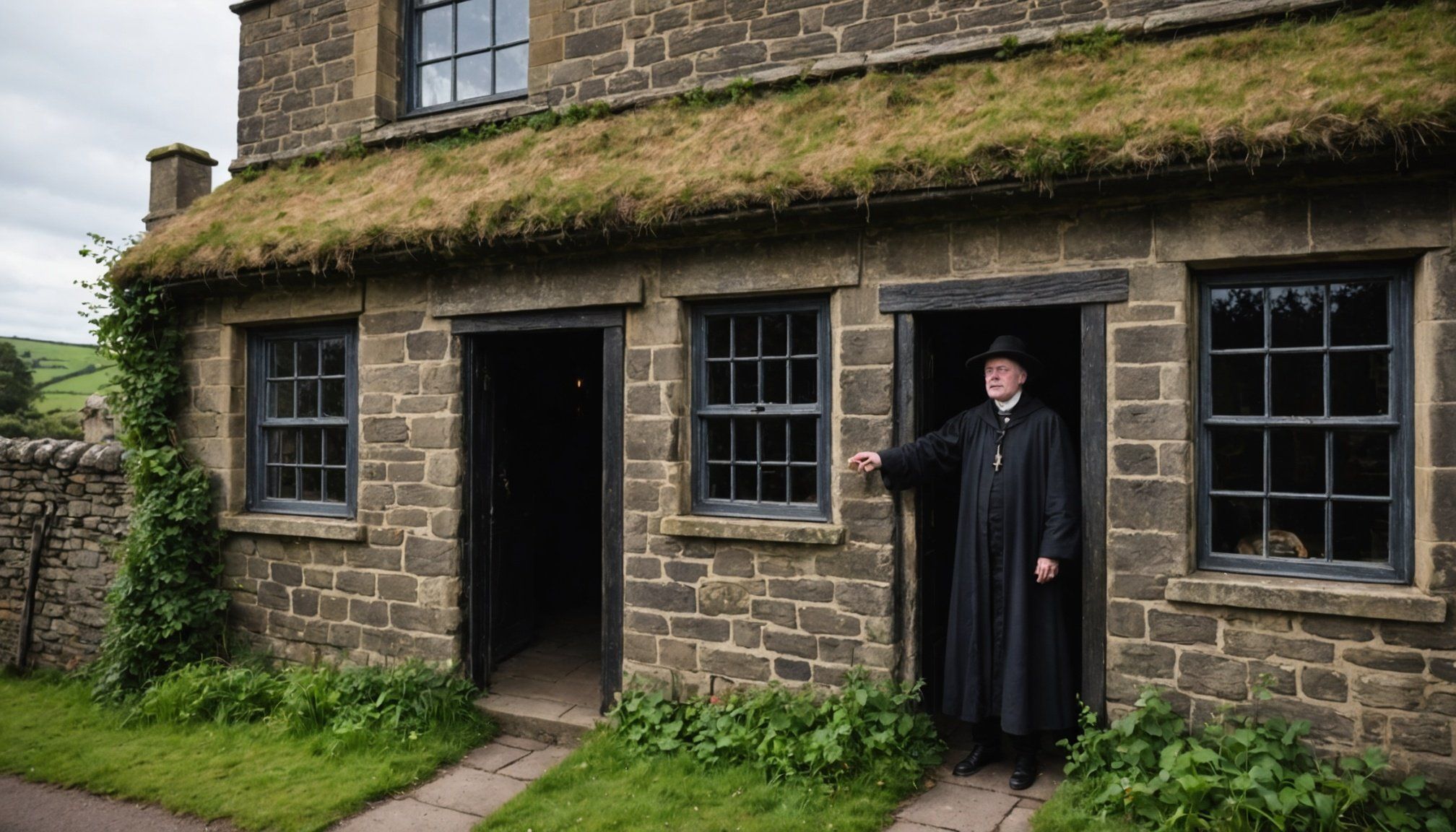Unveiling the Enigmatic UK Towns Perfect for Dark History Tours of British Witchcraft Persecution
If you’re fascinated by the darker corners of history, particularly those shrouded in the mysteries of witchcraft, the UK offers a plethora of towns that are perfect for an immersive and haunting experience. Here, we’ll delve into the rich history, key attractions, and the local nuances that make these towns must-visit destinations for anyone interested in the persecution of witches in Britain.
The Historical Context of Witchcraft in the UK
Before we dive into the specific towns, it’s essential to understand the broader historical context of witchcraft in the UK. The fear of witchery was rampant in the 16th and 17th centuries, fueled by the Witchcraft Act of 1563, which made it illegal to practice witchcraft, enchantments, or sorcery. This period saw numerous witch trials across the country, with the Pendle Witch Trials of 1612 and the East Anglia witch hunts of 1645-1647 being particularly notorious[1][3].
Also to see : Exploring the top uk cities to dive deep into the rich history of british press photography
Social and Political Influences
The social and political climate played a significant role in these witch hunts. During times of political instability, such as the English Civil War, fear and suspicion of witchcraft intensified. Women, especially those who were marginalized or lived outside societal norms, were often targeted. Accusations were tools for control, often serving personal and political agendas[1].
Consequences of Accusations
The consequences of witchcraft accusations were dire. Communities were torn apart as accusations bred mistrust and fear. Many suffered imprisonment, torture, or execution. These actions not only destroyed lives but also promoted widespread fear, perpetuating the cycle of accusations and trials[1].
Also to see : Exploring the rich legacy: must-visit uk locations for immersive coal mining history tours
Pendle: The Salem of the UK
Pendle, located in Lancashire, is perhaps the most famous town associated with witchcraft in the UK. Known as the “Salem of the UK,” Pendle is infamous for the Pendle Witch Trials of 1612.
Key Attractions
- Pendle Hill and Witch Mountain: These sites are central to the town’s dark history. Visitors can explore the chilling narratives of those accused of witchcraft through guided tours that trace the footsteps of the alleged witches from their homes to the trial sites.
- Local Museums and Historical Sites: The town has several museums and historical sites that offer a deep dive into the history of witchcraft. For example, the Pendle Heritage Centre provides a comprehensive look at the trials and their impact on the local community[1].
Experience the Haunted Landscapes
Pendle offers a range of ghost tours and walking tours that allow visitors to experience the haunted landscapes firsthand. These tours often include visits to the homes of the accused witches and the sites where they were tried and executed. With free cancellation options available, you can plan your tour with flexibility.
Bideford: The Last Documented Witchcraft Trial
Bideford in Devon is another town steeped in witchcraft history, notably being the site of the last documented witchcraft trial in the UK in 1682.
Historical Significance
- The Bideford Witch Trial: This trial is a significant part of Bideford’s identity and has deeply embedded itself in the community’s folklore. Visitors can explore the local museum and historical sites to understand the events leading up to the trial and its aftermath.
- Local Businesses and Community: The town’s local businesses often reflect its rich history. From witch-themed shops to historical reenactments, Bideford offers a unique blend of history and modern charm[1].
Guided Tours and Local Events
Bideford offers guided tours that focus on its witchcraft history, including walking tours and ghost tours. These tours are led by local guides who provide insightful commentary on the town’s history and the events that shaped it. During the new year, the town often hosts special events and reenactments that bring the history to life.
Other Notable Towns
St Osyth and the Essex Witch Hunts
St Osyth in Essex is known for its involvement in the Essex witch hunts, particularly during the 16th and 17th centuries. This town was a hub for witchfinder activities, notably those led by Matthew Hopkins, the infamous Witchfinder General.
- Matthew Hopkins’ Legacy: Hopkins’ methods of identifying witches were brutal and included pricking skin deformities and the water test. His activities resulted in the execution of hundreds of people accused of witchcraft[4].
North Berwick and the Scottish Witch Trials
North Berwick in Scotland is famous for the North Berwick witch trials, which involved King James VI himself. The king’s fear of witches was heightened after he suffered from storms while traveling to Denmark, leading him to order the suspects to be brought before him.
- Royal Involvement: The king’s personal involvement in these trials was unprecedented and led to a wave of witch hunts across Scotland. The trials are a stark example of how fear and superstition can lead to mass hysteria and persecution[3].
Recommended Historical Sites and Resources
When exploring the history of witchcraft, several historical sites and educational resources offer valuable insights.
Notable Museums
- The Museum of Witchcraft and Magic in Cornwall: This museum houses an extensive collection of artifacts linked to witchcraft traditions. It provides a comprehensive look at the history and practices of witchcraft in the UK.
- The Salem Witch Museum in Massachusetts: Although in the United States, this museum offers an immersive experience into the Salem witch trials, which are closely related to the British witchcraft history[1].
Books and Documentaries
- “Witches: A History of Persecution” by Nigel Cawthorne: This book offers a detailed examination of witch trials throughout history, providing a broad context for understanding the specific cases in the UK.
- “The Witches of Salem” by History Channel: This documentary presents detailed accounts of the events and beliefs influencing witch hunts, making it a valuable resource for those interested in the subject[1].
Practical Insights and Actionable Advice
Planning Your Tour
- Choose Guided Tours: Guided tours are the best way to experience the rich history of these towns. Local guides provide insightful commentary and can take you to hidden gems that you might miss on your own.
- Support Local Businesses: Many local businesses in these towns rely on tourism. Supporting them helps preserve the history and culture of the area.
- Be Respectful: Remember to be respectful of the historical sites and the communities that live there. These towns are not just tourist attractions but also homes to people who live with the legacy of these events.
Tips for the Best Experience
- Book in Advance: Especially during peak season, it’s advisable to book your tours and accommodations in advance to avoid disappointment.
- Free Cancellation Options: Look for tours and accommodations that offer free cancellation options to give you flexibility in your planning.
- Combine with Other Activities: Many of these towns are located near other historical sites or natural attractions. Consider combining your witchcraft tour with visits to nearby castles, country parks, or Roman walls to make the most of your trip.
Comparative Table of Notable Witch Trials in the UK
| Town | Year of Trial | Number of Executions | Notable Events |
|---|---|---|---|
| Pendle | 1612 | 10 | The Pendle Witch Trials were among the most famous in English history |
| Bideford | 1682 | 3 | The last documented witchcraft trial in the UK |
| St Osyth | 1582-1645 | Hundreds | Involvement in the Essex witch hunts led by Matthew Hopkins |
| North Berwick | 1590 | Several | Royal involvement by King James VI |
| East Anglia | 1645-1647 | Dozens | Part of a larger wave of witch hunts during the English Civil War |
Detailed Bullet Point List of Attractions and Activities
-
Pendle Hill and Witch Mountain:
-
Guided walking tours tracing the footsteps of the accused witches
-
Historical reenactments during special events
-
Visits to the homes of the accused witches
-
Bideford:
-
Local museum showcasing the Bideford Witch Trial
-
Guided ghost tours and walking tours
-
Witch-themed shops and local businesses
-
St Osyth:
-
Historical sites related to Matthew Hopkins’ activities
-
Guided tours focusing on the Essex witch hunts
-
Local events and reenactments
-
North Berwick:
-
Historical sites related to the North Berwick witch trials
-
Guided tours including visits to the royal commissions set up by King James VI
-
Local museums and educational resources
Quotes and Anecdotes
- “The witch-hunts were particularly severe in parts of the Holy Roman Empire. Prosecutions for witchcraft reached a high point from 1560 to 1630, during the Counter-Reformation and the European wars of religion.”[3]
- “Matthew Hopkins’ methods of identifying witches were brutal and included pricking skin deformities and the water test. His activities resulted in the execution of hundreds of people accused of witchcraft.”[4]
- “The Pendle Witch Trials are infamous and have left a lasting impact on the local culture. Such histories serve not only as cautionary tales but also as a vivid backdrop for tourists seeking historical context and adventure.”[1]
Exploring the dark history of British witchcraft persecution is a journey that takes you through some of the UK’s most enigmatic towns. From Pendle to Bideford, and from St Osyth to North Berwick, each town offers a unique and haunting experience. Whether you’re interested in guided tours, ghost walks, or simply immersing yourself in the rich history of these places, there’s something for everyone. So, pack your bags, grab your camera, and get ready to uncover the mysteries of Britain’s witchcraft past.


